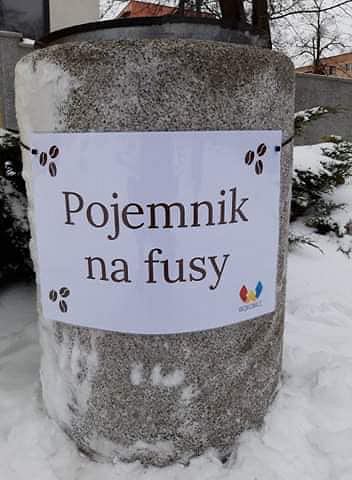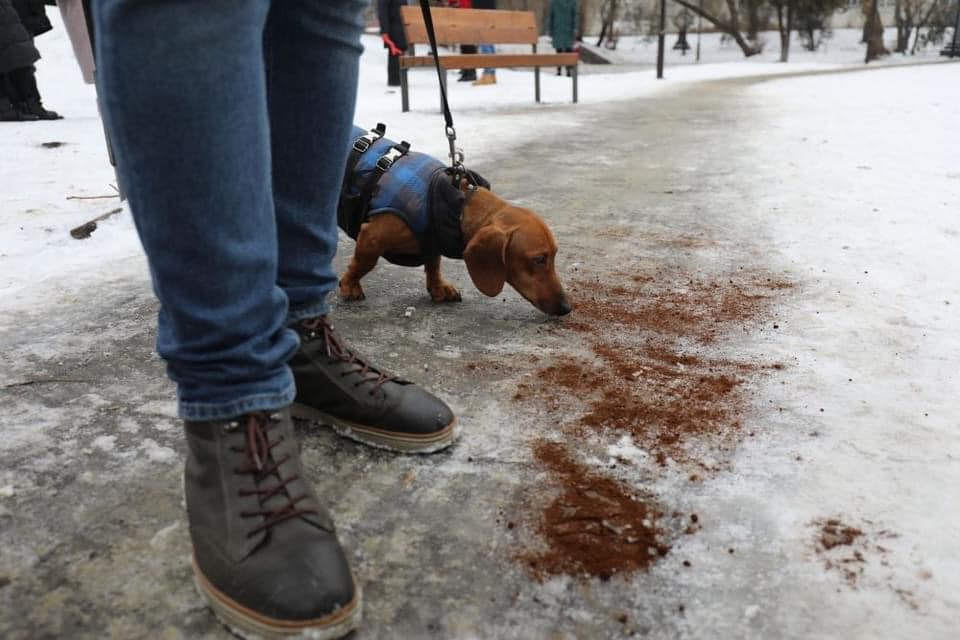As Poland battles with an icy and snowy winter, some local authorities have begun experimenting with scattering used coffee grounds on paths and pavements. They hope that this can be a more environmentally friendly way of clearing paths than the usual salt and sand.
The parks and greenery department in Kraków began the trend by following the example of one of its twin cities, Lviv in Ukraine, which recently launched a pilot project using dried-out coffee grounds – a waste product from brewing coffee – donated by local cafes.
“Inspired by the people of Lviv, we will be experimenting with using coffee grounds for maintaining the paths and avenues in one of our parks in Kraków,” announced the department. It has asked cafes to get in touch if they want to take part by donating coffee grounds.
Zainspirowani przez @lvivadm podejmiemy się eksperymentalnie użycia fusów z kawy do zimowego utrzymania w jednym z naszych parków w @krakow_pl
Prosimy krakowskie kawiarnie o kontakt z ZZM [email protected] lub przez fb ZZM.
Więcej o całej akcji:https://t.co/GkcaI85Us4 pic.twitter.com/AlKmO1TS94— piotrkempf_zieleń_Kraków (@zielen_krakow) February 6, 2021
This morning, the city expanded the experiment to a section of the paths in Planty, the green ring that encircles Kraków historic old town.
“Everybody will be able to check the effectiveness of this method for themselves,” wrote Piotr Kempf from the city’s greenery department, adding that more than 50 local cafes have already offered to supply their used grounds.
The idea has several advantages, according to Green Projects, a blog that suggested trying Lviv’s experiment out in Polish cities.
As well as recycling waste, it improves soil quality, protects dogs’ paws, which can be harmed by salt, and the aroma can revitalise walkers. Once dried out, coffee grounds are supposed to have an abrasive quality that helps to melt ice.
Fusami z kawą – zamiast mieszaniną soli i piasku – od rana chodniki posypują służby miejskie na warszawskim Ursynowie.
Poprawia się jakość gleby, fusy nie ranią łap zwierząt, ładnie pachną.
Ja też spróbowałem! Szczegóły w Faktach @RMF24pl o 9.00. pic.twitter.com/2AEY92HO1I
— Michał Dobrołowicz (@MDobrolowicz) February 9, 2021
This morning, the municipal authorities in the Ursynów district of Poland’s capital, Warsaw, also began experimenting with using coffee grounds on a pavements adjacent to the town hall.
“Yes, we are doing a coffee pilot study!” the district’s deputy mayor, Bartosz Dominiak confirmed in a Facebook post. “Our aim is above all to collect experiences and opinions from residents for the future.”
The mayor of Wojkowice, a small town in southern Poland near Katowice, has also expressed interest in the idea. He has appealed to local cafes to drop off coffee grounds in a dedicated bin so that they can be used as part of a pilot project, reports Gazeta Wyborcza.

The bin for donated coffee grounds in Wojkowice (press materials, via Gazeta Wyborcza)
The Lviv experiment was the brainchild of Iryna Orshak, an adviser to the mayor, who heard about similar initiatives elsewhere in Europe.
“In the [other] countries they battle with ice in this way. I wondered: why can’t we do that here, because Lviv is regarded as the coffee capital of Ukraine? The residents of Lviv like to drink coffee, there is a large network of coffees, so maybe we could try this method,” Orshak said, quoted by Lviv1256.com, a local news website.
Coffee grounds are more aesthetically pleasing in the natural environment of the park, Orshak noted, adding that she hoped the scheme would be “a good ecological and economic solution, because coffee shops provide us with this resource for free”.
The waste from used coffee is often used for composting or as a fertiliser in gardens, and some commercial cafe chains have run ecological initiatives to prevent their grounds going to waste.
But here has also been some criticism of the coffee grounds experiment. According to Eko-logicznie.com, an ecology blog, although the idea of reducing waste sounds good, their use reduces growth of plants, has a toxic effect on the soil and worms, and is also unlawful without registration in the official waste database.
Main image credit: Lviv City Council

Ben Koschalka is a translator, lecturer, and senior editor at Notes from Poland. Originally from Britain, he has lived in Kraków since 2005.




















